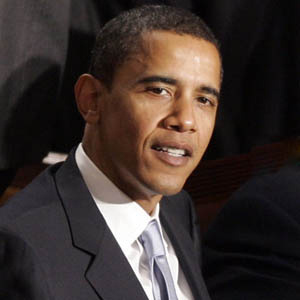WHY DID OBAMA REFUSE MATCHING FUNDS IN 2008?
FEC Hassan opinion quotes Natural born citizen requirement
On July 5, 2011, Abdul Hassan, an attorney from NY, submitted a request for an advisory opinion from the FEC. Hassan acknowledged that he was a naturalized citizen and not a natural born citizen. Abdul Hassan posed the following questions:
“1. Whether, as a naturalized American citizen, I am included in the meaning of
“candidate” or “person” or “individual” running for President as used in the Federal Election Campaign Act (“FECA”)?
2. Whether, as a naturalized American citizen, I am prohibited from receiving matching funds under the FECA?
3. Whether, as a naturalized American citizen, I would be in violation of 2 USC §
441h(b) ifi solicit and/or receive presidential campaign contributions?
4. Whether, in light of the steps I have taken in my presidential run as outlined above, I am subject to the expenditure, contribution and record-keeping requirements of FECA and the regulations thereunder? (Note: I have not yet crossed the $5,000 threshold that triggers the registration and reporting requirements – it is therefore important that I receive an answer before
these requirements are triggered.).”
http://www.scribd.com/document_downloads/63383043?extension=pdf
The FEC responded with an Advisory Opinion on September 2, 2011.
Here are some interesting exerpts:
“We are responding to your advisory opinion request concerning the application of the Federal Election Campaign Act of 1971, as amended (the “Act”), the Presidential Primary Matching Payment Account Act, as amended, and Commission regulations to your campaign for President of the United States, given your status as a naturalized citizen.
The Commission concludes that the Act does not prohibit Mr. Hassan, a
naturalized citizen, from becoming a “candidate” as that term is defined under the Act. However, Mr. Hassan will not be eligible to receive Federal matching funds under the Presidential Primary Matching Payment Account Act.”
“Mr. Hassan indicates that he satisfies all of the constitutional requirements for
serving as President, except the natural born citizen requirement in Article II, Section 1, Clause 5 of the Constitution. 1″
“2. As a naturalized American citizen, is Mr. Hassan eligible to receive
presidential matching funds under the Presidential Primary Matching Payment Account Act?”
“No, as a naturalized American citizen, Mr. Hassan is not eligible to receive
presidential matching funds under the Presidential Primary Matching Payment Account Act (“Matching Payment Act”).
The United States Constitution provides that “[n]o Person except a natural born
Citizen, or a Citizen of the United States, at the time of the Adoption of this Constitution, shall be eligible to the Office of President . . . .” U.S. Const. art. II, sec. 1, cl. 5.”
“2 The Act does not contain separate definitions for candidates for different Federal offices. The Constitution’s “natural born Citizen” provision only pertains to “the Office of President.” U.S. Const., art. II, sec. 1, cl. 5.
3 Mr. Hassan’s status as a “candidate” under the Act does not in any way affect whether Mr. Hassan will be eligible to appear on State ballots or to be a candidate under various State laws. In fact, it is the Commission’s understanding that some State ballot access laws provide that a person cannot appear on the
ballot or be considered a candidate unless the person will be qualified for the office he or she purports to seek.”
“Although the Matching Payment Act does not specifically address the citizenship requirement for serving as President, it sets forth the eligibility requirements to receive matching funds. See 26 U.S.C. 9033; 11 CFR 9033.2. See also, e.g., Advisory Opinion 1996-07 (Browne for President) (describing the steps a candidate must take to become eligible for matching funds). These provisions collectively reflect Congressional intent to ensure that U.S. Treasury funds in the form of matching funds are only paid to eligible candidates. 5″
“The Commission is charged under the Matching Payment Act with administering the Federal matching funds program and has some discretion when certifying eligibility for matching funds. While the Commission may not “appraise candidates’ good faith, honesty, probity or general reliability when reviewing the agreements and other forwardlooking commitments required” by the Matching Payment Act, see LaRouche v. FEC, 996 F.2d 1263, 1269 (D.C. Cir. 1993), situations may exist in which, “without assessment of subjective candidate intent, the Commission might conceivably withhold funds despite
formal compliance with the statutorily expressed criteria.” Id. Clear and self-avowed constitutional ineligibility for office is one of the few instances where the Commission’s exercise of its discretion to withhold funds is appropriate.”
http://saos.nictusa.com/aodocs/AO%202011-15.pdf
Observations
The FEC refers to the US Constitition requirement for the presidency, natural born citizen.
The FEC notes the distinction between a natural born citizen and naturalized citizen.
The Fec states that a naturalized citizen is not eligible for the presidency.
The FEC states that only a natural born citizen may receive presidential matching funds.
The FEC acknowledges that although they do not have the authority to keep ineligible candidates off of ballots, some of the states do.
“3 Mr. Hassan’s status as a “candidate” under the Act does not in any way affect whether Mr. Hassan will be eligible to appear on State ballots or to be a candidate under various State laws. In fact, it is the Commission’s understanding that some State ballot access laws provide that a person cannot appear on the
ballot or be considered a candidate unless the person will be qualified for the office he or she purports to seek.”
Hence the GA and other state ballot challenges to Obama.
Conclusions
The FEC still acknowledges the US Constitution.
However, in 2007 when Robert Bauer of Perkins Coie submitted an advisory opinion request on behalf of Barack Obama to keep open the option for presidential matching funds, Bauer knew that Obama was not a natural born citizen. Ellen Weintraub, on the FEC committee that responded with an advisory opinion in the affirmative for Obama, was a former Perkins Coie staff member. Fraud was committed by Obama and Bauer and one has to question the ethics of Weintraub’s involvement.
The FEC acknowledges with these statements:
“Although the Matching Payment Act does not specifically address the citizenship requirement for serving as President, it sets forth the eligibility requirements to receive matching funds. See 26 U.S.C. 9033; 11 CFR 9033.2. See also, e.g., Advisory Opinion 1996-07 (Browne for President) (describing the steps a candidate must take to become eligible for matching funds). These provisions collectively reflect Congressional intent to ensure that U.S. Treasury funds in the form of matching funds are only paid to eligible candidates. 5″
“The Commission is charged under the Matching Payment Act with administering the Federal matching funds program and has some discretion when certifying eligibility for matching funds. While the Commission may not “appraise candidates’ good faith, honesty, probity or general reliability when reviewing the agreements and other forwardlooking commitments required” by the Matching Payment Act, see LaRouche v. FEC, 996 F.2d 1263, 1269 (D.C. Cir. 1993), situations may exist in which, “without assessment of subjective candidate intent, the Commission might conceivably withhold funds despite
formal compliance with the statutorily expressed criteria.” Id. Clear and self-avowed constitutional ineligibility for office is one of the few instances where the Commission’s exercise of its discretion to withhold funds is appropriate.”
that there are eligibility requirements for receiving presidential matching funds and that the FEC is charged with administering these funds. It is clear
that the FEC should always require proof of eligibility. It should have done so in 2007. We know there was inherent bias in 2007 (see part 4 of this series).
Court cases also clarify the powers given to the FEC. The FEC has more power than they have alluded to.
See Doug Teper, et al V. Zell Miller, et al, April 24, 1996.
http://bulk.resource.org/courts.gov/c/F3/82/82.F3d.989.96-8147.html








 by
by 







































 An election for President and Commander in Chief of the Military must strive to be above reproach. Our public institutions must give the public confidence that a presidential candidate has complied with the election process that is prescribed by our Constitution and laws. It is only after a presidential candidate satisfies the rules of such a process that he/she can expect members of the public, regardless of their party affiliations, to give him/her the respect that the Office of President so much deserves.
An election for President and Commander in Chief of the Military must strive to be above reproach. Our public institutions must give the public confidence that a presidential candidate has complied with the election process that is prescribed by our Constitution and laws. It is only after a presidential candidate satisfies the rules of such a process that he/she can expect members of the public, regardless of their party affiliations, to give him/her the respect that the Office of President so much deserves.
